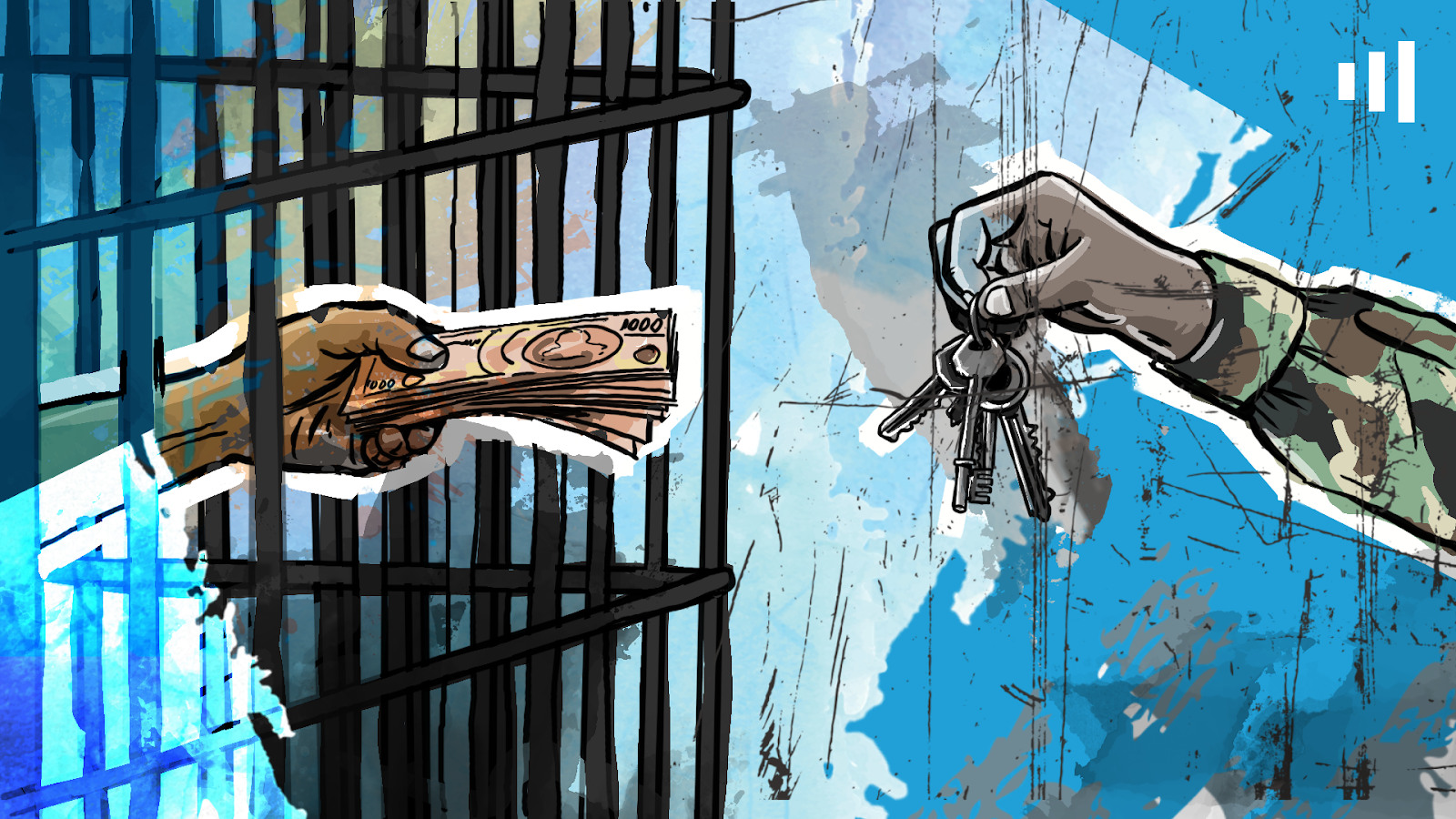“There,” he said. Hanging beside the driver in a commercial tricycle, Haruna* pointed at the front yard of a house on the east side of the 1000 Housing Estate in Maiduguri. “I gave him the money at this point.”
The scene he described happened over ten years ago, in 2014. Two years earlier, Nigerian military officers had arbitrarily arrested two of his younger brothers alongside other residents of Bama, a town in Borno, northeastern Nigeria. Someone had told him that a high-ranking official of the Civilian Joint Task Force (CJTF) — a voluntary security outfit formed to tackle Boko Haram insurgents — could help him get his brothers back. He introduced him to this person in Maiduguri, the state capital, and that was when the cash exchange happened.
“We heard he had access to the [Giwa] barracks, and he can do and undo,” Haruna explained.
When they met, the CJTF official said the authorities would have to open files for each of the 26 people arrested, which would cost him ₦150,000. This was a lot of money back in 2014, when it was equivalent to $915.
“I don’t know what kind of file they went to open.”
After paying this money, the CJTF kingpin became elusive. Haruna lost direct access to him. Whenever a middleman contacted him, he kept saying he was still on the matter — each reassurance holding less weight than the one before it.
Since 2009, states in northeastern Nigeria — especially Borno — have been caught in the middle of a savage insurgency occasioned by the rise of the Boko Haram terrorist group. According to the United Nations Development Programme (UNDP), the conflict has led to the direct death of about 35,000 people as of 2020. Hundreds of thousands more people have lost their lives due to starvation, poor healthcare, and other tragedies caused by the crisis. On top of that, over 2.2 million people are still internally displaced in the region.
In their response, Nigeria’s armed forces have often been found to engage in gross human rights violations, including mass arbitrary arrests, extrajudicial killings, and years-long detention of suspects without trial. At the centre of many of these abuses sits the Giwa barracks, a military detention facility in Maiduguri. Here, tens of thousands of civilians have been held unlawfully — many times for close to a decade — and thousands have lost their lives. According to Amnesty International, between 2011 and 2020, up to 10,000 died in custody as a result of the Boko Haram crisis, “many of them in Giwa Barracks”. The NGO’s investigations also revealed that many of the mass arrests were based on random profiling “rather than evidence of criminal wrongdoing”. The scale of this problem meant that many families were desperate to get their loved ones back, believing them to be innocent — and, in the process, many of them became victims of financial exploitation.
Over the years, detainees at Giwa barracks have occasionally been released in batches — 275 detainees in 2016, 876 children later that year, and 333 more underage detainees between 2019 and 2020. In July 2021, the Nigerian Army announced that it had approved over a thousand detainees for release after clearing them of wrongdoing. Since then, more and more people have regained their freedom from the notorious barracks.
For the first time, starting in August 2023, the military authorities have even allowed detainees to phone their families and have arranged visitation at the barracks. Another unusual thing is happening, though. Families are receiving calls from their detained loved ones, who say there’s an opportunity to fast-track their release if they pay some money — usually between ₦50,000 and ₦200,000.
We asked Nigeria’s military authorities about these findings but did not get a direct response. “I have no insight into this. Please ask the spokespersons at the DHQ [Defence Headquarters]. It’s within their purview,” replied Army spokesperson Brigadier General Onyema Nwachukwu. He later explained that this is because counter-insurgency operations in the North East are a joint task force effort coordinated by the DHQ. However, when we reached out to the Director of Defence Media Operations, Major General Edward Buba, he passed the buck back to the Nigerian Army, insisting that “Giwa barracks falls under the[ir] purview.”
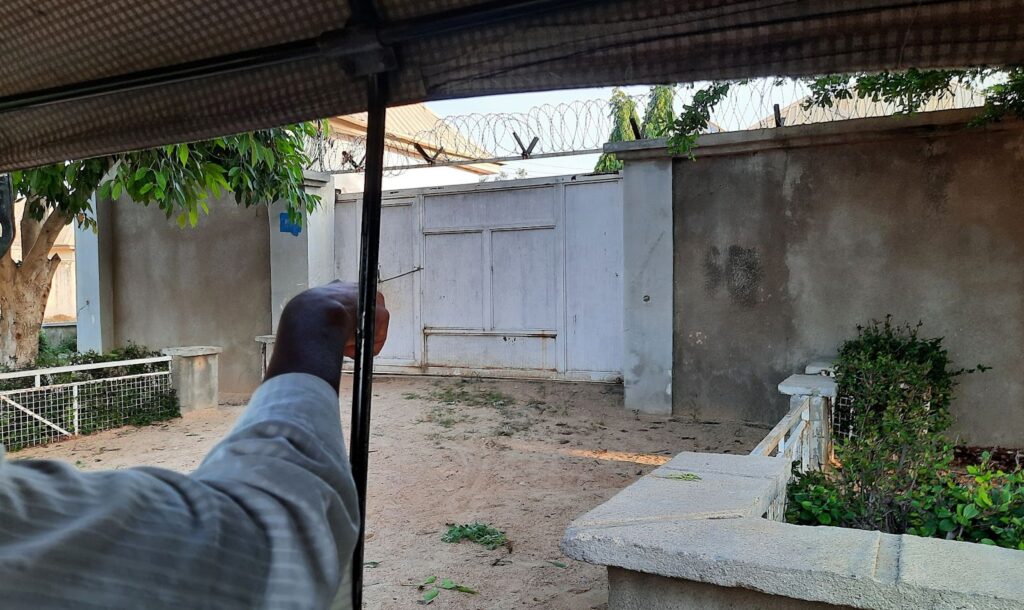
A midnight raid
Haruna’s troubles started one midnight in 2012 when soldiers raided his hometown of Bama and went away with 36 people, including two of his brothers: 21-year-old Babagana Al’amin Ibrahim and 24-year-old Mohammed Ibrahim. A few days later, they returned 10 of them who were thought too young or too old. The rest were transferred to Giwa barracks, and most have not been heard from since. Some say they may have been transferred elsewhere. Others say they are dead.
Mohammed was a sophomore in the Department of Sociology at a college of education in Bama and a secondary school teacher in Konduga. Babagana was a final-year accounting student at the same college. He also worked as a pump attendant.
“When they arrested him, he was writing his final year thesis in fulfilment of that course,” Haruna said about Babagana, raising and tightening his voice to express his frustration. “Even on the eve of that arrest, he was writing his project in the midnight. The manuscript and what-have-you were in front of him. They arrested him inside my father’s house. No amount of explanation that my father gave to the military, they refused to listen.”
At the time, Haruna lived next door and could hear the commotion. Only a fence separated the two houses. He placed a stool next to the wall, climbed on it, and saw the troubling events as they unfolded. He wanted to intervene, but his wife argued that if they arrested him too, he would not be able to push for their release later.
“Suddenly, the advice turned out to be good to me. If I had joined them, maybe I, too, would have perished there.”
Haruna heard about his brothers’ possible death from at least two sources. One of the townspeople arrested, who escaped when Boko Haram insurgents attacked the detention facility in March 2014, was one of them.
“According to that guy, on the first day of fasting in Ramadan of 2013, the military brought sahur [breakfast]. We suspect that the food was poisonous because almost all those who ate it died as a result of diarrhoea. They suddenly collapsed and died.”
This was how Mohammed died, the source said. HumAngle has previously received a similar report of food poisoning at Giwa barracks around the same period. One employee of the Borno State Specialist Hospital said soldiers blamed poisoning on a day they deposited over a hundred bodies of detainees at the morgue.
The same former detainee claimed the younger Babagana died shortly after they were locked up in the barracks. There was no place in the cell to sit comfortably, so he stood for long periods, he said. He then sustained an injury on his leg, which caused him to fall and die.
Haruna is not eager to embrace this account. As he narrated, he repeatedly tempered the story with phrases like “according to,” “if the information is correct,” and “I don’t know the truth of the issue since I wasn’t there with them.” He even doubts the reliability of the source, suggesting that the man’s sickness may have “mixed up his thoughts”.
The arrests sowed seeds of death and distress in the family. Haruna believes both his parents, Ibrahim and Falmata, became hypertensive and passed on because of what happened to their sons.
“My father died in this place. A stroke hit, and he died in this place. He was sitting in this chair when he had the attack, so I dropped him on the floor. Same as my mother, she died in this bedroom. She went to the toilet to ease herself, and then she fell there,” he pointed to the sofa opposite us and the bedroom on his right as he spoke.
The couple died only five months apart — the man on Jan. 10, 2018, and the woman in June the same year. Haruna is the eldest of 17 children and has had to shoulder a big responsibility in the absence of his parents and hardworking brothers.
He clarifies that it is not the money he was scammed of that pains him. His family was doing well before Boko Haram invaded. He had multiple shops and a successful farming business.
“Money is nothing o,” he emphasised. “But to promise somebody; even if the thing doesn’t really yield results, just tell the person that I did so and so. But I didn’t get access to the information. There was no tangible result. They didn’t even come to us, talk less of the tangible result … let me tell you precisely; what the military and the other security agencies did to me in my life is far worse than what Boko Haram did to me.”

A scheme, a pattern
Last year, HumAngle published the story of Hajja Gana. Her son, Mustapha, was a victim of an early morning mass arrest in the Buluabulin Ngaranam area of Maiduguri in 2012. He ended up in Giwa barracks.
Hajja Gana was serially swindled in her bid to get her son released. Weeks after his arrest, she got access to see her son, who pleaded with her to get him out of the barracks. “The soldiers told us it would require a lot of money,” she recalled.
She got money from Mustapha’s business partners, got money from her savings, and sold anything valuable in her possession — including her jewellery and landed property. Ultimately, she paid about ₦2 million to some soldiers and a lawyer.
“There was a time they asked me to provide ₦25,000 for them to service and fill up the tank of one of their vans so that they could sneak him out of Maiduguri to Damaturu, Yobe state, where I would travel ahead of time and receive him, but on the condition that I don’t let him return to Borno state. I gave them the money and rushed down to Damaturu, where I waited all day, but neither my son nor the soldiers who collected my money showed up,” she said.
“Sometimes, they would call me and ask for money to enable them to check for his file, or they would call and tell me that one of their bosses wanted to see me, and when we met for a rendezvous, they would make all kinds of promises to me and then ask for money.”
Many others have fallen into the same trap.
Mallam Uba Sa’adu sold his two plots of land to send money to his detained son every week through a police officer working at the Criminal Investigation Department (CID). He said he later found out he was giving the boy only ₦300 out of the ₦4,000.
Likewise, after Zahra Modu’s son, Usman, was arrested in 2013, some ‘military personnel’ went to his office with the assurance that they could get him released if they were paid half a million Naira. After negotiating, they settled on an advance payment of ₦300,000 and a balance of ₦200,000 following the release. Usman’s colleagues contributed some of the money while the family struggled to raise the rest.
“When the money was paid, they promised he would be brought within three days. Later, they came and told us, ‘We have brought him out but he died later.’ So, we performed our funeral rites,” Zahra said.
She would later learn from people released from Giwa barracks that Usman was still alive and in the cell.
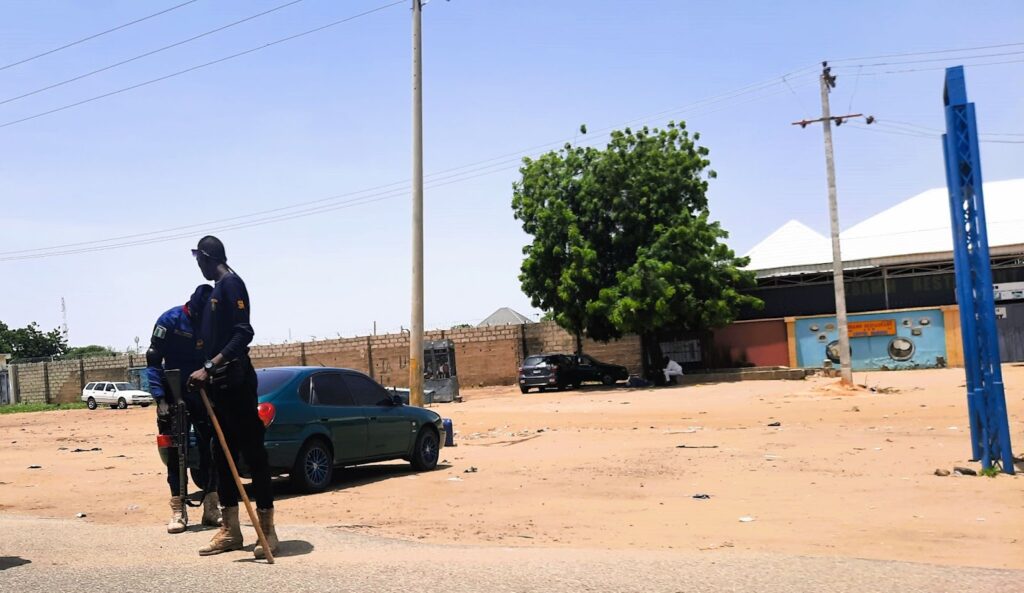
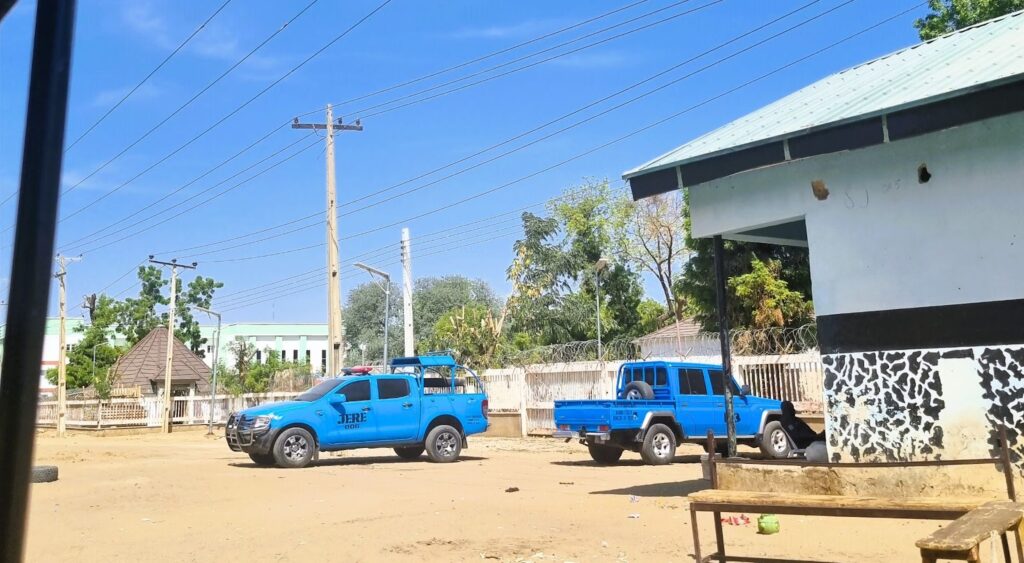
Strange calls from Giwa
People across Borno have recently started receiving calls from their families held at the Giwa barracks with the same strange request: ‘send some money so that I can pay for my freedom.’
Musa* was one of those who received such calls. It was from Muhammed Ibrahim, 40, who had lived together with him at the Gidan Taki displacement camp in Maiduguri before it was shut down.
Muhammed was arrested four years ago at the Gamboru Market, where he had gone to buy medicines for his shop. The security agents claimed he was planning to deliver the items to Boko Haram and took him to Maimalari Barracks. They then transferred him to Giwa barracks.
First, in March, one man who had just been released from the detention facility, came to Musa with a message from Muhammed. He said people were paying ₦50,000 to be included in the list of those scheduled for release. He also sent a phone number that could be used to reach him, but when Musa called the number, it was unavailable.
“Suddenly, in June, at a moment like this, he contacted me. He told me his condition and requested that I should send him ₦60,000 naira for his release, and that I should add ₦10,000 because it would be used in settling the soldier who would deliver the money,” Musa recalled.
He did not have up to this amount, so he asked friends and business partners to pitch in. When the money was complete, he gave it to Muhammed’s wife.
Shortly afterwards, Muhammed called again with a different number to confirm he had received the money. “He said a time will come when he will need me. He has no idea when. But he really really expects to get to me when he calls. We have not spoken since then.”
This experience surprised Musa because he had always presumed detainees at Giwa barracks were released “without giving anything”. Now, he thinks of the many family members and friends he has at the facility and wonders if he can pay bribes to facilitate their freedom as well. He thinks of Ahmad who returned to the village of Gulumba nine years ago to get his aged mother after many residents had fled and was arrested. He thinks of Abba Kellu who travelled to Maiduguri ten years ago to sell his cattle and was arrested by members of the Civilian Joint Task Force (CJTF), who also took his proceeds for themselves.
“I will certainly pay to get them out since this is what is being done now,” he said.
Fatima*, Muhammed’s wife, confirmed delivering the money in mid-June through a middleman she met in the Bulabulin neighbourhood of Maiduguri. “He is not working there [at Giwa barracks], but I think they send him – he goes between people and the military,” she said about this middleman. When HumAngle met her in August, she still did not know when Muhammed would be released and had not received a call from him in nearly a month. But, from time to time, she sends cash and cap-knitting materials to him through the middleman.
“You know, it is prohibited to collect bribes or any monetary benefits at the Giwa barracks. So, the military collects the money indirectly,” Musa explained.
Muhammed and Fatime have six children together. Caring for the children in his absence has been tough for her, especially since the authorities stopped humanitarian organisations from providing aid. The children attend a nearby school that was opened by an NGO, but the classes have not been consistent and they cannot afford an alternative. The thought of what she could have done with the money she sent to Giwa barracks causes Fatime to laugh softly.
“I would start a petty business and take better care of the children,” she said.
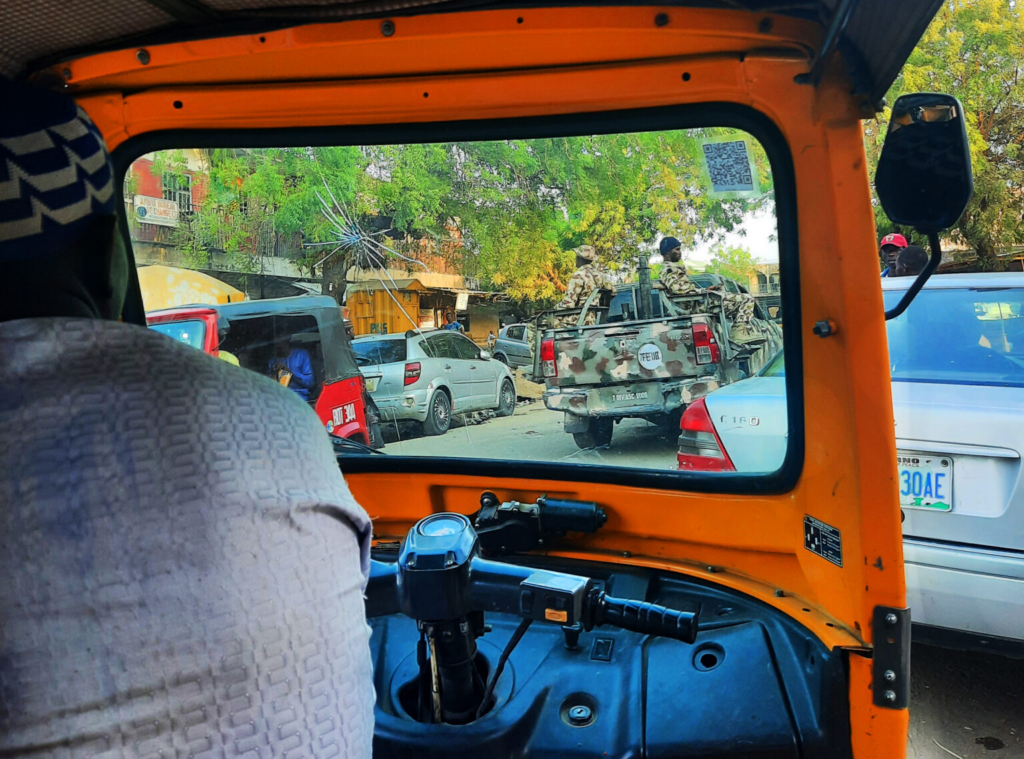
Too poor to bribe
Even though the demands coming from Giwa barracks do not involve large amounts of money, many families who are willing to pay still cannot afford them. They are too busy trying to stay alive, and it has not been easy.
Fanne (last name withdrawn), 50, also received phone calls from her detained husband this year, just before eid-l-Kabir in June. Before the call, the only proof she had that he was alive came from former detainees who confirmed seeing him at the facility. Abba Kellu said he needed ₦100,000 to secure his release. To Fanne, this was a lot of money. There was no way she could raise that by herself.
“Look at my hand,” she said, stretching both her palms to reveal tiny bruises. Despite her grooming, her fingernails also tell a story of hard labour. Each day of work fetches her ₦1,000. “I have to go to the farm and work. When I go and come back, then we will eat. Today, I came here instead and I don’t even know what we will cook. This is the problem.”
For IDPs like her to rely on daily wages to eat, they have to constantly work, defying harsh weathers and the frailties of their bodies. They cannot afford to fall sick.
“It’s daily,” she said about her work, her tone reflecting sorrowful defeat before shifting to anger. “If you don’t go, what can you get to give the children?”
The story of her husband’s arrest is similar to that of the other Abba Kellu, Musa’s relative. About a decade ago, when Boko Haram terrorists invaded their village, Bodari, he decided to go sell five of his cows in Maiduguri, so they could raise some money. The plan was to rent a house around the state capital and relocate. After the sale, he would have been able to get about ₦600,000. On his way back, CJTF members arrested him and four others in Dusuman, a community on the outskirts of Maiduguri. Fanne thinks it might be because they saw him with a lot of money. (During the peak of the insurgency, the Nigerian Army suspected that Boko Haram was using cattle trading to fund its war and shut down livestock markets across Borno, including the state capital.)
Fanne said she knows of another family in Bama who paid and their loved one returned around March. But it has been difficult for her to get others to contribute in her husband’s case. They don’t believe the military would ask for money, she says.
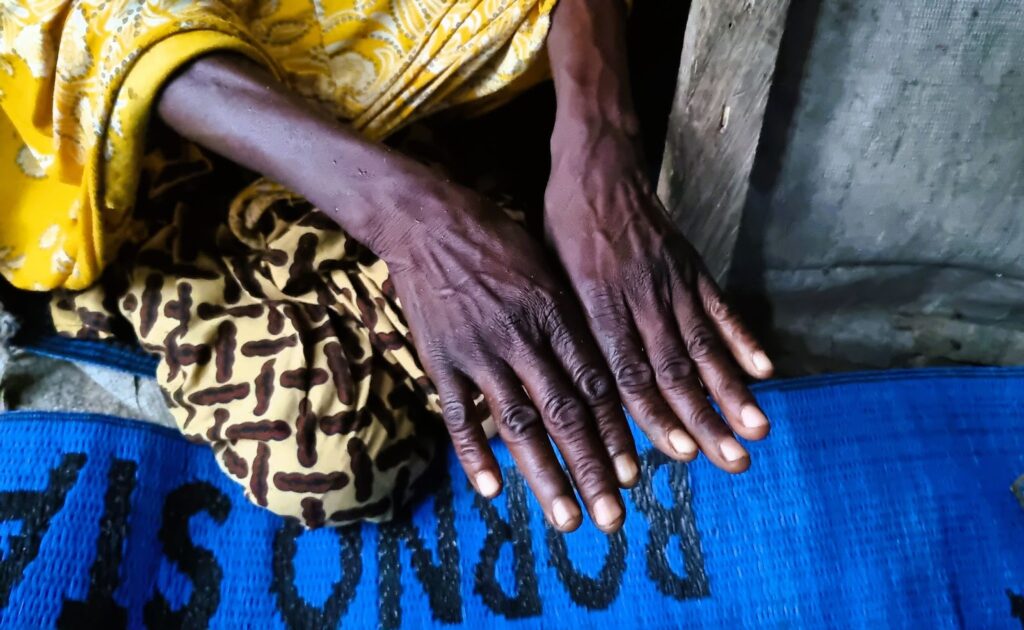
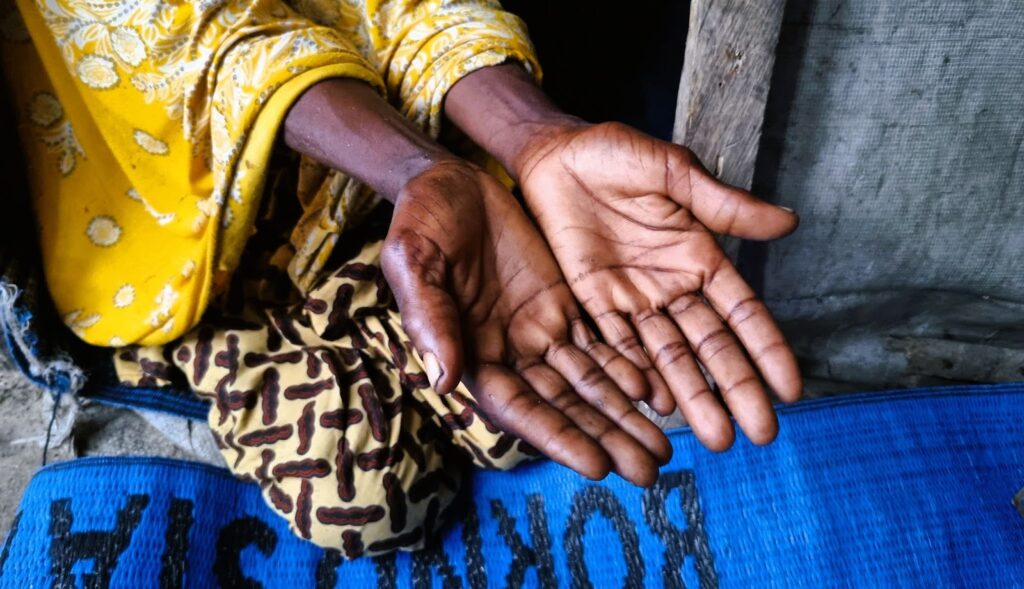
This was also Falmata’s experience. Her son, Abdulwahab Muhammed, 29, was arrested four years ago at the Molai Market, where he sold women’s accessories. Around February, she finally received a call from him. He said he was at Giwa barracks and that “they requested some form of payment (₦200,000) before he would be released.” A suitor had just paid the bride price for her daughter’s hand in marriage, so she removed ₦50,000 and sent it through her son’s friend, who knew his way around the barracks.
Three months later, Abdulwahab invited her to visit him. When she got there alongside his younger sister and friend, she saw that so many other families had been invited, too. The detainees were brought out of their cells. Large plastic mats were spread out in the open and the families were given about 40 minutes for the reunion.
Though he had lost a lot of weight, Abdulwahab said he was fine. He reminded her about the money. When she saw him that day, she felt like paying immediately and taking him home with her. “But I am poor,” she said, wearing a blank expression as unshakable as her overflowing wine hijab. She has felt helpless ever since she was faced with this opportunity.
“What we get is barely enough to feed us. We survive from hand to mouth. If I had any asset I could sell to pay and get him released, I would have done so. We work in people’s homes, all of us. My two daughters wash dishes at people’s homes while I assist one woman with her domestic chores. Afterwards, I go to the maize mill to spend the day. If I am able to gather some flour there, we stir and eat.”
For the domestic chores, they get paid between ₦5,000 and ₦10,000. Before this money comes, they often go to bed hungry on days she cannot scrape something from the mill. She recently had to remove an additional ₦20,000 from the bride price to buy foodstuff. As the date set for the wedding approaches quickly, she is worried she lacks the resources to make it work.
Asked if she has tried raising funds the same way families rally around to contribute ransoms for victims of kidnapping, she replied that this was a different situation. In the case of people abducted, their families know that they would be killed if the ransom was not paid. “And it is a known fact that ransom is paid to secure freedom from kidnapping. However, for this, it is not a known fact. Also, everyone is concerned about getting what to eat,” she added.
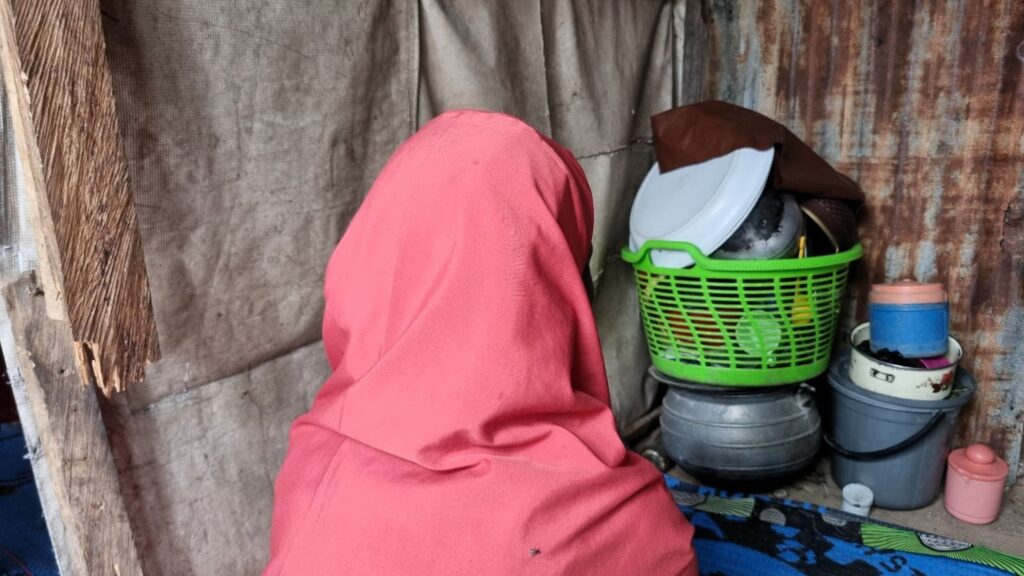
They looted me’
The story repeats itself. It is all too common in this slice of the world. Mass arrest. Never-ending detention. Silence. Heartache. For Haruna, it was two brothers. For Abubakar*, it was two sons and a brother.
In 2013, Nigerian soldiers raided the Gwange II neighbourhood in Maiduguri and randomly bundled off about 115 young men. HumAngle learnt that a burial ceremony was being held on the street for a young man who the Nigerian Army suspected of being a Boko Haram member. The soldiers must have had similar suspicions about those attending the funeral. One of those arrested was Adamu Sa’adu, whose story we covered here. Some of the other victims were Abubakar’s children — 15-year-old Sadiq and 18-year-old Mustapha (Ba Lawan) — and his brother, Ba Kaka. Both Sadiq and Mustapha were final-year secondary school students.
Abubakar was attending the burial ceremony, too.
“They were even pointing out people one by one. ‘You, come out. You, come out.’ I sat near my father. But we elders, they did not talk to us. They carried the young people,” he recalled.
“They took them to the NEPA office. At this very NEPA, I heard from a CJTF member that they killed one of my sons, the junior one, Sadiq. They killed some people. They carried the rest to the barracks. From there, we have been struggling to see our children.”
Some of the affected parents gathered the next morning and selected a delegation of five people to visit Giwa barracks. Abubakar led this team. Soldiers at the entrance advised them to turn back, but they insisted they wanted to see their children. Two of them were directed to meet one Major.
“I greeted him, ‘Good morning, officer.’ He turned back to see us and said, ‘Is this a police station?’ I told him the place was not a police station. He asked, ‘Do you know where you are?’ I told him, ‘Yes sir, we are inside Giwa barracks.’ From there, he said, ‘Are you here to bribe us? I said if the Army were collecting bribes, Nigeria would not be stable up to now.”
Some people who had just been arrested were placed under a tree for interrogation. Abubakar considered screaming his son’s name; perhaps he would hear him and respond. But the Major’s presence intimidated him. Other soldiers had suggested that he was “very wicked”.
Eventually, one officer escorted them out and promised to ensure his children were released if they were found innocent. He also warned Abubakar not to return to the barracks.
He, however, did not give up. He approached anyone who offered help, but none of it led anywhere. He paid ₦100,000 to a soldier at Sector 4 and about ₦100,000 to some CJTF officials. He also took ₦70,000 from his wife to pay a lawyer, who he heard was bailing people out of the barracks.
He went to the market with this lawyer.
“We bought yam for about ₦15,000. As of then, that ₦15,000, even if you had ten children, you could buy food that would last you for one month. He was mentioning what we were going to buy for the Army. He said he would take it to them. We went to where they sold chicken; he showed us about four to eight chickens. We bought. We settled him also. And he said we should give him money that he was going to give them. We did all these things. We bought drinks, about ten crates. I don’t know where he took them. Whether he used it personally or he took it to them.”
When he asked to follow the lawyer to the barracks, he insisted he would go alone. That was when Abubakar started suspecting that he had been duped.
When Haruna realised the arrangement with the CJTF official was leading nowhere, he also approached a lawyer in Bama for help. The lawyer shuttled between Bama and Maiduguri about six times. He was paid for his transport and feeding expenses each time, cumulatively running into about ₦400,000. “Anytime he returned from Maiduguri, he briefed us. He said he went there, opened files, got their names, and even secured access to see some of them at that time,” Haruna recalled. Unfortunately, when it seemed he was making progress with the case, Boko Haram terrorists raided his house and killed him for refusing to hand over the key to his Toyota Camry.
It is, however, unclear if the lawyer really had any chance of securing the freedom of the people detained. During this period, lawyers commonly promised families that they would bail their loved ones while having no actual access to the detention facility.

“The CJTF people [also] exploited people. But none of them ever brought somebody’s family back from the barracks. They just cheated people and settled themselves. This was what happened,” Abubakar continued.
“Any person I heard would help me; I would give them some money. The CJTF would even bring someone you don’t know who would pretend to be a security agent. Then they would collect money as you are desperate. We are desperate to see our people.”
Abubakar sobbed when asked how he felt about the exploitation.
“I was cheated. They separated me from my beloved sons, and they extorted me. They looted me, in fact. It is looting. Any time I remember this, I used to shed tears. I am not happy at all,” he sighed.
He suggested that if the government truly means well, it should properly investigate those it points accusatory fingers at. If a person is arrested, security agents should ask the people in their community about them and get evidence to support their case. In a waspy, teary voice, he pleaded with the authorities to return his children “if at all they are doing this in good faith”.
Haruna has a similar demand.
“If they are alive, let the government release them for us. If they are not alive, let the government come out and apologise to us. Out of the two, we must get one,” he swore.
“Or else, they should have to give the reason for the killings. If they have a connection with Boko Haram, then let them provide proof … Even if they pay the diyah (blood money) and apologise, we will never forget this thing in our life. We will only be calm.”
*Names have been changed to protect the sources’ identity.
The article discusses the ongoing issue of arbitrary arrests and detentions in Nigeria's Borno State due to Boko Haram insurgencies.
Families of detainees at the Giwa barracks — a notorious detention center known for human rights abuses — face financial exploitation as they are asked to pay bribes for their relatives' releases.
Many victims' families, often in poverty, are powerless as detainees contact them for money to facilitate their release, revealing a systemic extortion scheme in which purported security personnel and middlemen exploit desperate families.
Despite efforts to pay for their loved ones' releases, many families are swindled, receiving false promises without results. The article highlights the narratives of multiple families who have lost significant financial and emotional resources due to these scams and unresolved detentions. Amidst the financial strain, many also face personal hardships, as the unjust practices have led to deaths and destruction of familial livelihoods. Both Haruna and many others seek truth, reconciliation, or evidence regarding the accused associations of their detained family members.
Support Our Journalism
There are millions of ordinary people affected by conflict in Africa whose stories are missing in the mainstream media. HumAngle is determined to tell those challenging and under-reported stories, hoping that the people impacted by these conflicts will find the safety and security they deserve.
To ensure that we continue to provide public service coverage, we have a small favour to ask you. We want you to be part of our journalistic endeavour by contributing a token to us.
Your donation will further promote a robust, free, and independent media.
Donate HereStay Closer To The Stories That Matter

